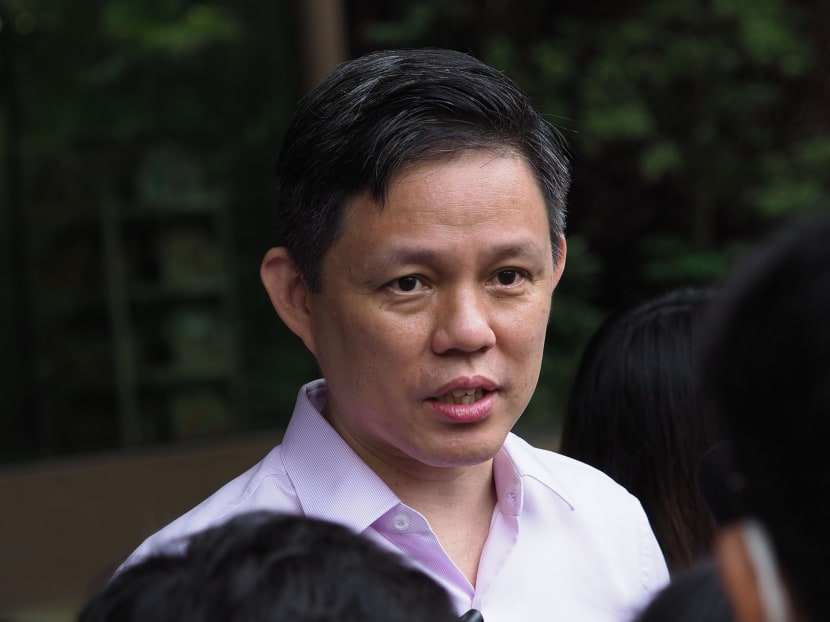Currently Estimated Potential ‘no longer single most important determinant’ in civil servants' progression following review
SINGAPORE — A civil servant’s Currently Estimated Potential (CEP) will “no longer be the single most important determinant” of his or her career development and progression, Mr Chan Chun Sing said on Tuesday (Oct 6).

A civil servant’s Currently Estimated Potential will “no longer be the single most important determinant” of his or her career development and progression, said Minister-in-charge of the Public Service Chan Chun Sing on Tuesday.
- Nee Soon GRC MP Louis Ng asked if the Government intends to abolish the use of CEP within the civil service
- The CEP system for assessing cvil servants will be refined in several ways following a review of the system last year, Mr Chan Chun Sing said
- This is even though a review concluded that CEP remains a “useful tool to identify and develop (civil service) officers with leadership potential”
SINGAPORE — A civil servant’s Currently Estimated Potential (CEP) will “no longer be the single most important determinant” of his or her career development and progression, Mr Chan Chun Sing said on Tuesday (Oct 6).
The Minister-in-charge of the Public Service said that the CEP system will be refined in several ways following a review of the system last year. It is “part of a pro-active review of (the civil service’s) human resource systems and policies, to support public sector transformation”.
Some of the revisions will refine what qualifies as “leadership potential” and place more emphasis on helping civil servants "identify their potential and career goals" in the short to medium term.
Mr Chan was giving a written answer to a parliamentary question filed by Mr Louis Ng, Member of Parliament (MP) for Nee Soon Group Representation Constituency, who had asked if the Government intends to abolish the use of CEP within the civil service.
Mr Chan, who is also the Trade and Industry Minister, said that the CEP system is used to assess a civil servant’s leadership potential and is expressed in terms of the largest job responsibility level that an officer is deemed to be capable of undertaking in his or her career in the public service.
Over the years, the CEP system has been a bone of contention among some civil servants. It has also been the subject of parliamentary questions filed by MPs.
In 2018, for example, Mr Ng had asked if the civil service appraisal system is based on the CEP system and how it encourages innovative thinking among civil servants.
The year before that, Mr Dennis Tan, who was then a Non-Constituency MP from the Workers’ Party, had asked how the CEP system takes into account the educational qualifications of civil servants and if different qualifications affect compensation and career progression for individuals at the same grade.
Responding to Mr Ng’s latest question, Mr Chan said that following the review of the system, the Government concluded that while CEP remains a “useful tool to identify and develop civil service officers with leadership potential”, the public sector needs to adapt its application in several ways.
“First, we need to refresh what qualifies as having high CEP, or ‘leadership potential’. The set of leadership competencies has been refreshed to be more holistic,” Mr Chan said.
For instance, leaders must be able to build systems for the future, lead people well and have a good sense of the ground. Mr Chan said that such qualities may be monitored through job rotations and new channels such as “360 feedback” — a feedback process involving supervisors and peers.
Secondly, while the CEP system remains a means to identify those with leadership potential early, it will be used “more lightly” in human resources decisions relating to career development and progression, Mr Chan said.
“We will place greater weight on assessing officers’ demonstrated skills and competencies as part of performance management, progression, and talent identification and management.”
Lastly, the Government will place more emphasis on helping individuals identify their potential and career goals within the next three to five years, and work with them on achieving these goals.
To this end, the public service has started to expand training, job rotations and career coaching as it expects the CEP of public service officers to change in tandem with the shifts in “operating landscape”, Mr Chan added.
“What is important is to create the best conditions for our officers to discover their passion and talents and to maximise their full potential.”











